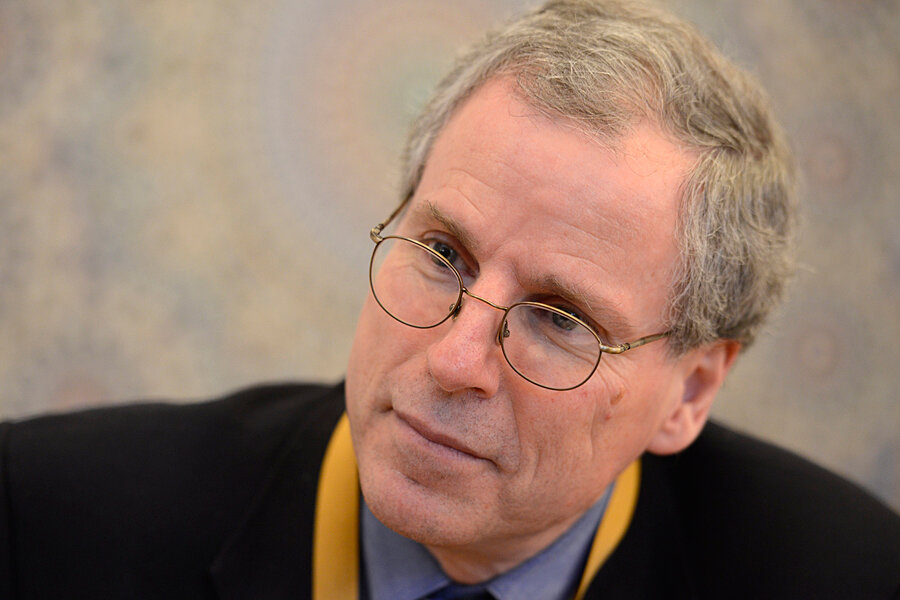Syria's 'third force' Kurds may emerge stronger from conflict
Loading...
| Medford, Mass.
News that hasn’t hit the headlines – yet
There's a third party to Syria's civil conflict, and it may be the only one to emerge somewhat victorious from the war.
As President Bashar al-Assad's grip has loosened, the roughly 2 million Kurds in Syria's northeast have made their strongest bid yet to break away from Damascus. Earlier this year, the Democratic Union Party (PYD), the Syrian Kurds' dominant political force, created a new regional government.
The Kurds' alliances are murky. Nor do they have a seat at the table at Syria's troubled peace talks. Their push for greater autonomy bears watching. However, unlike in Iraq under Saddam Hussein, the Kurds of Syria can't count on US support, as Robert Ford, the US ambassador to Syria until his resignation Friday, makes clear. Mr. Ford spoke Saturday at a panel held at Tufts University. Here are some takeaways.
Whose side are the Kurds on?
The PYD isn't necessarily in opposition to Assad. Its forces have clashed with Islamist opposition factions; in some locales Kurdish forces coexist, albeit uneasily, with the regime. As a result, the opposition has accused the PYD of having an alliance of sorts with Assad, which the PYD denies.
So perhaps it's not surprising that the PYD isn't represented at Syrian peace talks in Switzerland. The US has “absolutely rejected” the idea of the PYD being a part of the opposition delegation, Ford said. Even its inclusion in talks is contentious – the issue almost caused an opposition walkout at the last round.
“Perhaps the PYD should be at the Geneva talks, but not with the opposition delegation,” Ford said.
But it's equally hard to foresee the Kurds in the regime delegation, given its long history of discrimination against the Kurds, including the revocation of Syrian citizenship for hundreds of thousands of them in the 1960s.
The US does not want another semi-autonomous Kurdish region.
Kurds established a semi-autonomous region in northern Iraq in 1991 after driving out Iraqi forces – with the help of the US. But the US has no intentions of supporting a similar endeavor in Syria, Ford said.
“It will be necessary for us to talk to the PYD, but it has to happen with the understanding that the US supports the unity of Syria… not supporting a breakaway western Kurdistan,” he said, using a term for northeastern Syria frequently used by the Kurds.
The Kurdish issue comes second.
Ford was emphatic that the US priority is a peace agreement between the regime and opposition, and that Kurdish issues ought to be resolved in a new postwar Syrian constitution. In other words: Wait it out.
The US does not want to unsettle Turkey.
The PYD is the Syrian arm of the Kurdistan Workers’ Party (PKK), a Kurdish guerilla movement in Turkey that has been labeled a terrorist organization by Turkey, the US and the European Union.
“When you’re thinking about [talking to the PYD], you have to measure what do we gain if we have that conversation, and if we’re going to gain something, how are we going to handle the negative Turkey reaction?” he said. “I’m not saying we can’t do it. I’m saying that we want to make sure when we do it, the gain outweighs the negative blowback we get.”
But if the PKK is considered a terrorist group, can the US talk to the PYD? Technically yes, since the PYD has never been listed as an official affiliate of the PKK.








